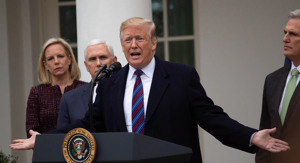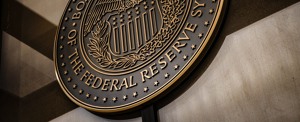Tavex uses cookies to ensure website functionality and improve your user experience. Collecting data from cookies helps us provide the best experience for you, keeps your account secure and allows us to personalise advert content. You can find out more in our cookie policy.
Please select what cookies you allow us to use
Cookies are small files of letters and digits downloaded and saved on your computer or another device (for instance, a mobile phone, a tablet) and saved in your browser while you visit a website. They can be used to track the pages you visit on the website, save the information you enter or remember your preferences such as language settings as long as you’re browsing the website.
| Cookie name | Cookie description | Cookie duration |
|---|---|---|
| tavex_cookie_consent | Stores cookie consent options selected | 60 weeks |
| tavex_customer | Tavex customer ID | 30 days |
| wp-wpml_current_language | Stores selected language | 1 day |
| AWSALB | AWS ALB sticky session cookie | 6 days |
| AWSALBCORS | AWS ALB sticky session cookie | 6 days |
| NO_CACHE | Used to disable page caching | 1 day |
| PHPSESSID | Identifier for PHP session | Session |
| latest_news | Helps to keep notifications relevant by storing the latest news shown | 29 days |
| latest_news_flash | Helps to keep notifications relevant by storing the latest news shown | 29 days |
| tavex_recently_viewed_products | List of recently viewed products | 1 day |
| tavex_compare_amount | Number of items in product comparison view | 1 day |
| Cookie name | Cookie description | Cookie duration |
|---|---|---|
| chart-widget-tab-*-*-* | Remembers last chart options (i.e currency, time period, etc) | 29 days |
| archive_layout | Stores selected product layout on category pages | 1 day |
| Cookie name | Cookie description | Cookie duration |
|---|---|---|
| cartstack.com-* | Used for tracking abandoned shopping carts | 1 year |
| _omappvp | Used by OptinMonster for determining new vs. returning visitors. Expires in 11 years | 11 years |
| _omappvs | Used by OptinMonster for determining when a new visitor becomes a returning visitor | Session |
| om* | Used by OptinMonster to track interactions with campaigns | Persistent |
| Cookie name | Cookie description | Cookie duration |
|---|---|---|
| _ga | Used to distinguish users | 2 years |
| _gid | Used to distinguish users | 24 hours |
| _ga_* | Used to persist session state | 2 years |
| _gac_* | Contains campaign related information | 90 days |
| _gat_gtag_* | Used to throttle request rate | 1 minute |
| _fbc | Facebook advertisement cookie | 2 years |
| _fbp | Facebook cookie for distinguishing unique users | 2 years |

The U.S. national debt has officially crossed $37 trillion, reaching 123% of GDP, a level not seen since World War II. At the centre of this fiscal upheaval is Donald Trump’s new budget bill, famously dubbed the “One Big Beautiful Bill.”
Many analysts believe this controversial proposal could trigger a profound shift in the global financial system, potentially accelerating de-dollarisation and challenging the U.S. dollar’s global reserve currency status. Is This the Beginning of the End for Dollar Dominance?
The Exploding Dimensions of the U.S. Fiscal Crisis
The United States is now adding approximately $6 billion in national debt every day, or more than $70,000 per second. Projections show the U.S. national debt could reach $54 trillion by 2034, climbing to 172% of GDP by 2054.
fToday, interest payments on the national debt have already outpaced defense and healthcare spending, becoming the second-largest federal expense. These developments have sparked growing fears of a U.S. debt crisis that could undermine global financial stability.
Inside Trump’s “One Big Beautiful Bill”

Trump’s fiscal package combines large-scale tax cuts with record-breaking spending on defense and border infrastructure, a classic case of expansionary fiscal policy. However, the plan is entirely debt-funded.
Tariff revenue, initially proposed as a funding source, is expected to bring in only $200–$300 billion annually, falling dramatically short of covering the bill’s multi-trillion-dollar cost. As a result, critics argue that the Trump budget bill could drive the U.S. government into deeper fiscal imbalance and contribute to an unstable global monetary system.
Political Fallout: Republicans Split Over National Debt and Spending
Perhaps the most surprising development is the Republican backlash. Libertarian conservatives within the GOP have blasted the bill as a betrayal of core fiscal conservatism. The most visible rupture came when Elon Musk resigned from the administration, stepping down from his role as head of the Department of Government Efficiency.
In a high-profile statement, Musk condemned the bill for “irresponsibly inflating the deficit,” a move that highlighted growing discontent with Trump’s handling of the U.S. debt ceiling and broader economic policy.
Monetary Policy at a Crossroads: The Fed Under Pressure

Trump has also signalled his intent to replace Federal Reserve Chairman Jerome Powell in May 2026, aiming to install someone more aligned with his economic vision. The Jerome Powell replacement raises alarms that the Fed may adopt a dovish monetary policy stance, prioritising political goals over inflation control and interest rate stability.
The combination of loose fiscal and monetary policy has historically led to hyperinflation, currency depreciation, and the erosion of investor confidence. Analysts now fear that this could signal the beginning of a U.S. dollar collapse if confidence in the currency continues to deteriorate.
The Decline of Dollar Hegemony and Rise of Alternatives
The weaponisation of the U.S. dollar through financial sanctions, particularly against Russia, Iran, and others, has accelerated the global search for alternatives.
The freezing of $300 billion in Russian central bank reserves shocked foreign governments and exposed the vulnerabilities of relying on the dollar
In response, the BRICS nations are actively working on alternative currency systems, including a gold-backed currency and multilateral settlement mechanisms. Increasingly, there is talk of a post-dollar world, in which currency baskets or even digital assets replace the dollar’s central role in international trade and finance.
What Will the Bank for International Settlements Do?

The Bank for International Settlements (BIS) is now under pressure to coordinate a global response to rising U.S. monetary instability. Even under Powell’s relatively hawkish leadership, the dollar has experienced notable weakness. Should Trump’s new Fed appointment favour aggressive rate cuts, it could put unsustainable pressure on the dollar and accelerate global de-dollarisation.
The BIS and other central banks may be forced to adapt quickly, laying the groundwork for a more multipolar financial system that reduces reliance on the U.S. dollar.
Read more on the topic here: Central banks plan to abandon dollars and buy gold
Conclusion: A Tipping Point in the Global Financial Order?
As the U.S. national debt in 2025 continues to grow unchecked, and political divides deepen over economic policy, the future of the U.S. dollar as a global reserve currency is increasingly in question. Trump’s “One Big Beautiful Bill” may prove to be the flashpoint that triggers broader monetary realignment, redefining the global financial order for decades to come.

















